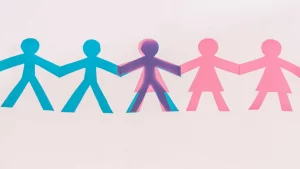Decision in Re Jamie
In Re Jamie [2013], the court held that proceeding to Stage 2 treatment of Child Gender Dysphoria requires approval by the Family Court irrespective of unanimous agreement between all parties, and that parents are unable to provide consent to this treatment due to its irreversible nature.
As medical expertise developed in this area, this decision became broadly criticised for narrowing the ambit of parental responsibility, and imposing onerous costs, delay and burdens on children and families.
Departure from Re Jamie and Development of the Law
In the landmark case of Re Kelvin [2017], the court discussed that since Re Jamie, the state of medicine and the law has rapidly evolved. It was noted the risks involved and the consequences of the treatment being irreversible can no longer be said to outweigh the therapeutic benefit of the treatment where a diagnosis and assessment of treatment by a medical practioner adheres to best practice guidelines. The Court also took judicial notice of the time-consuming, costly and onerous process the Courts had previously imposed.
This decision now allows families to access necessary treatment without unnecessary legal burdens, and aligns the law with best medical practice.
What Happens When There is Dispute Over Treatment?
Whilst the decision in Re Jamie alleviates requirements to make applications to the Family Court where all relevant parties agree to both stages of treatment, the Court retains its important jurisdiction to resolve disputed treatment decisions.
The Court remains responsible for deciding the following:
- Whether the child is Gillick competent and capable of providing consent to treatment;
- Where there is dispute over diagnosis of Gender Dysphori;
- Where the parties dispute about the proposed treatment; or
- Where the child is not Gillick competent and one or both parents will not consent to treatment, or a parent cannot be located to provide consent to treatment.
Under the Family Court’s jurisdiction pursuant to s67ZC Family Law Act, applications may be made to the Court to proceed with treatment, with the Court having regard to the best interests of the child.
If you or a loved one are facing challenging and important medical decisions such as Gender Dysphoria treatment, it is important you obtain both medical and legal advice. Call us on (02) 8917 8700 to find out more.

